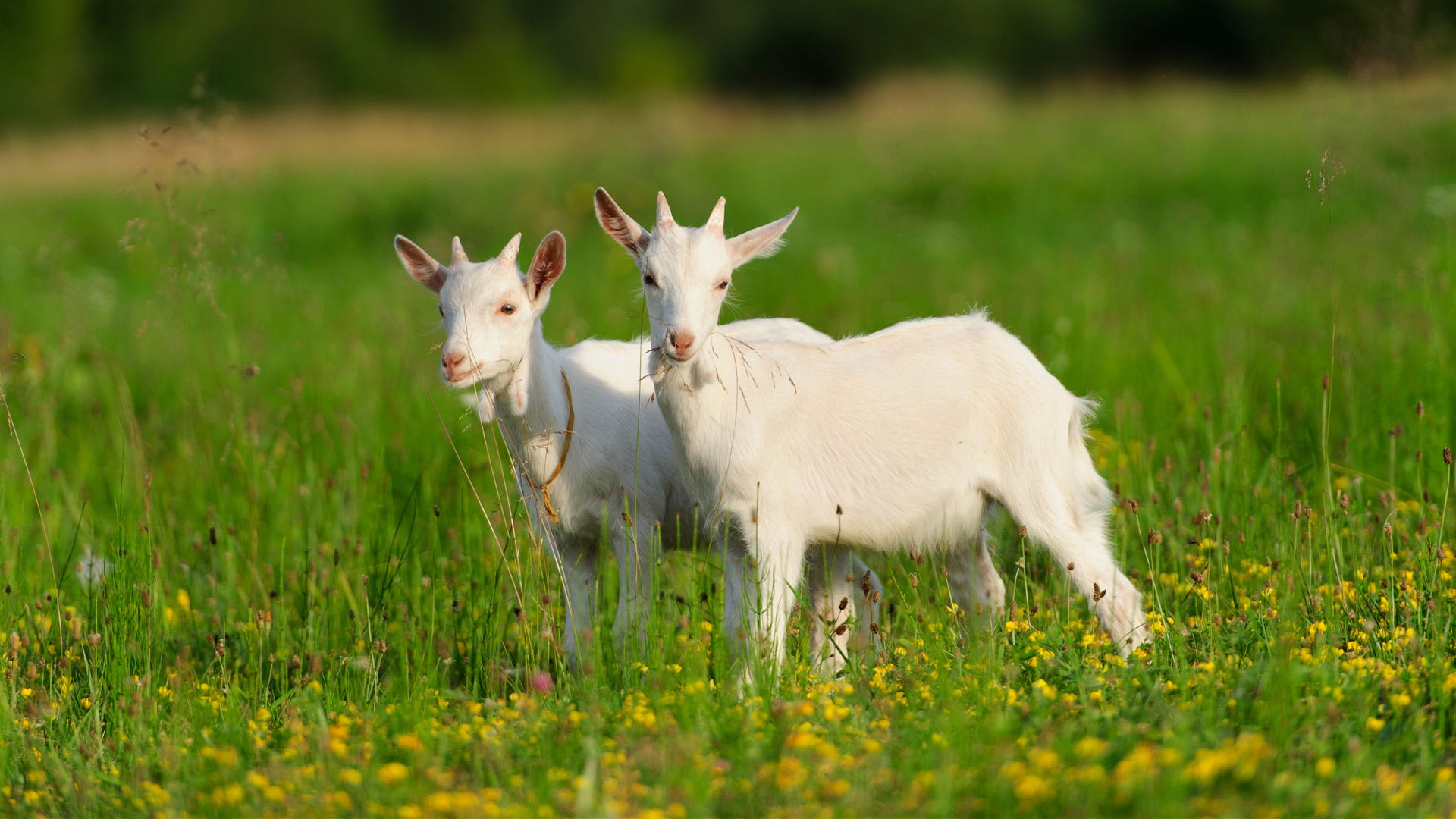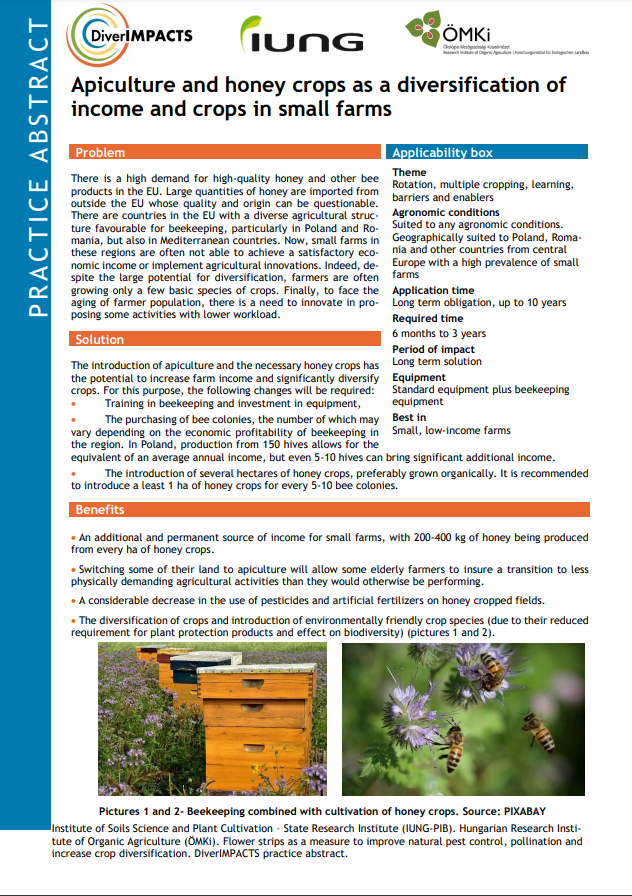Imagine walking through your small farm and seeing thriving plants, free from pests and full of life. This is not just a dream but a reality you can achieve with the right organic pesticides.
You want to protect your crops and ensure they grow healthy, without the harsh chemicals that can harm the environment and your produce. Organic pesticides offer a safer, effective solution, keeping pests at bay while nurturing the ecosystem of your farm.
But, which ones are the best for your small farm? With so many options available, choosing the right organic pesticide can feel overwhelming. You need solutions that are not only effective but also easy to use, budget-friendly, and environmentally safe. We will guide you through the best organic pesticides that can transform your small farm into a flourishing haven of health and sustainability. Stay with us to discover how you can protect your crops naturally and effectively, ensuring your farm remains a source of pride and productivity. Are you ready to find out the secrets to a pest-free, organic farm? Read on to learn more!

Benefits Of Organic Pesticides
Organic pesticides offer a safer alternative for small farms, reducing harmful chemicals while maintaining crop health. They enhance soil fertility, promote biodiversity, and protect beneficial insects, ensuring sustainable farming practices.
Choosing organic pesticides for your small farm can transform your approach to pest management. These natural solutions offer a range of benefits that promote a healthier ecosystem. They not only help protect your crops but also preserve the delicate balance of the environment. Let’s explore why organic pesticides might be the right choice for your farm.1. Environmental Safety
Organic pesticides are derived from natural sources. They break down quickly and do not persist in the environment. This means they are less likely to contaminate water sources or harm non-target species. Have you ever thought about the impact of conventional pesticides on local wildlife? Using organic alternatives can help protect beneficial insects like bees and butterflies.2. Healthier Crops
When you use organic pesticides, your crops are less exposed to harsh chemicals. This can lead to healthier produce with fewer residues. Imagine picking a fresh tomato from your garden, knowing it’s free from synthetic chemicals. Your customers will appreciate this commitment to quality and health.3. Soil Fertility
Many organic pesticides, like neem oil and diatomaceous earth, have additional benefits for soil health. They can enhance soil fertility and microbial activity, improving the overall soil structure. Healthy soil is the foundation of a thriving farm. What steps are you taking to nurture your farm’s soil?4. Cost-effectiveness
While some organic pesticides may have a higher upfront cost, they can save money in the long run. By reducing the need for multiple chemical treatments, you can lower overall pest control costs. Plus, the benefits to soil and crop health can result in better yields over time. Have you considered the long-term savings of switching to organic solutions?5. Compliance With Organic Standards
If you’re pursuing organic certification, using organic pesticides is a must. They help you meet the stringent requirements set by certifying bodies. This certification can open up new markets and opportunities for your farm. Are you ready to take your farm to the next level with organic certification? Choosing organic pesticides is more than just a trend. It’s a step towards sustainable and responsible farming. By considering the benefits, you’re investing in the future health of your farm and the planet. What will your farm’s legacy be?Popular Organic Pesticides
Choosing the right pesticides is crucial for small farms. Organic options offer effective pest control without harming the environment. This section explores popular organic pesticides that keep crops healthy.
Neem Oil
Neem oil is derived from the seeds of the neem tree. It disrupts the life cycle of insects. This makes it a powerful pest deterrent. Neem oil is safe for beneficial insects.
Diatomaceous Earth
Diatomaceous earth is made from fossilized algae. It destroys pests by dehydrating them. This method is natural and non-toxic. Farmers use it to protect crops from crawling insects.
Pyrethrin
Pyrethrin is extracted from chrysanthemum flowers. It targets a wide range of insects. Pyrethrin works quickly and effectively. It is safe for humans and pets but harmful to fish.
Garlic Spray
Garlic spray is easy to make at home. It repels insects with its strong odor. Farmers appreciate its cost-effectiveness. Garlic spray is gentle on plants and soil.
Insecticidal Soap
Insecticidal soap targets soft-bodied insects. It breaks down their outer layer, causing dehydration. This method is eco-friendly and safe. Farmers find it effective against aphids and mites.
Application Techniques For Small Farms
Small farms benefit from organic pesticides, ensuring healthy crops and soil. Effective application techniques include using neem oil and insecticidal soap. These natural options protect plants from pests without harming the environment, making them ideal for sustainable agriculture.
When it comes to maintaining a small farm, applying organic pesticides effectively can make all the difference. The secret lies in the techniques you use. With the right methods, you can protect your crops without harming the environment or breaking the bank. Let’s dive into some practical application techniques that will transform how you use organic pesticides on your small farm.Understand The Timing
Timing your pesticide application is crucial. Early morning or late afternoon is often the best time. This minimizes the impact on beneficial insects like bees. Plus, cooler temperatures can help the pesticide stick to your plants better.Use The Right Tools
Having the right tools can streamline the pesticide application process. A backpack sprayer is a popular choice for small farms. It offers precision and reduces waste. Remember to calibrate your sprayer for an even application across your crops.Test On A Small Area First
Before you apply any pesticide widely, test it on a small patch of your farm. This ensures your plants won’t have adverse reactions. It’s a simple step that can save you from unexpected problems later.Mix Only What You Need
Mixing only what you need prevents wastage and ensures effectiveness. Organic pesticides can lose their potency quickly. By preparing small batches, you maintain their strength and protect your crops efficiently.Rotate Your Pesticides
Using the same pesticide repeatedly can lead to resistance. Rotate different organic pesticides to keep pests at bay. This strategy not only keeps your crops safe but also maintains the effectiveness of your pest control efforts.Keep Your Equipment Clean
Clean equipment is essential for effective pesticide application. Residue from previous applications can contaminate your new batches. Regular cleaning ensures your tools remain in top condition and your crops get the full benefit of the pesticide.Stay Informed About Weather Conditions
Weather can play a significant role in the effectiveness of your pesticide application. Rain can wash away your efforts, while strong winds can cause drift. By staying informed, you can choose the perfect time to apply your organic pesticides. As you implement these techniques, consider how they fit into your overall farm management strategy. Are there areas you can improve or adapt? The journey of a small farmer is one of constant learning and adaptation. By focusing on these details, you can protect your crops while embracing sustainable practices.
Choosing The Right Pesticide For Your Farm
Choosing the right pesticide for your small farm is crucial. It ensures healthy crops and safe produce. Organic pesticides offer a natural alternative. They protect plants without harming the environment. Selecting the right one can boost your farm’s productivity. Consider the type of crops, pests, and local conditions. This guide helps you make an informed decision.
Understanding Your Farm’s Specific Needs
Every farm has unique requirements. Evaluate your farm’s size and crop types. Identify the common pests you encounter. This helps narrow down pesticide choices. Different crops attract different pests. Tailor your pesticide choice to these specifics.
Researching Pesticide Ingredients
Not all organic pesticides are the same. Check the active ingredients. Some target specific pests. Others offer broader protection. Choose ingredients that align with your farm’s needs. Safe ingredients ensure the health of your soil and crops.
Checking Environmental Impact
Organic pesticides should be eco-friendly. Consider their impact on local wildlife. Some pesticides can harm beneficial insects. Choose options that preserve the ecosystem balance. This supports long-term farm health.
Evaluating Application Methods
Application methods vary with each pesticide. Some require spraying, others need soil incorporation. Consider your farm’s equipment and labor availability. Choose a method that suits your operation. This ensures efficient pest control.
Considering Cost And Availability
Budget matters in farming operations. Compare costs of different pesticides. Ensure they fit your budget. Check the availability in your region. Consistent supply is essential for ongoing pest management.

Conclusion
Organic pesticides offer safe solutions for small farms. They protect crops without harming the environment. Choosing the right pesticide is crucial for healthy growth. Farmers can reduce chemical use and safeguard their soil. Natural options like neem oil and diatomaceous earth are effective.
These choices help maintain the farm’s balance. Using organic methods supports sustainable farming practices. Small farms benefit from increased productivity and healthier crops. Embracing organic pesticides is a step towards a greener future. By prioritizing natural solutions, farmers contribute positively to their community and planet.



